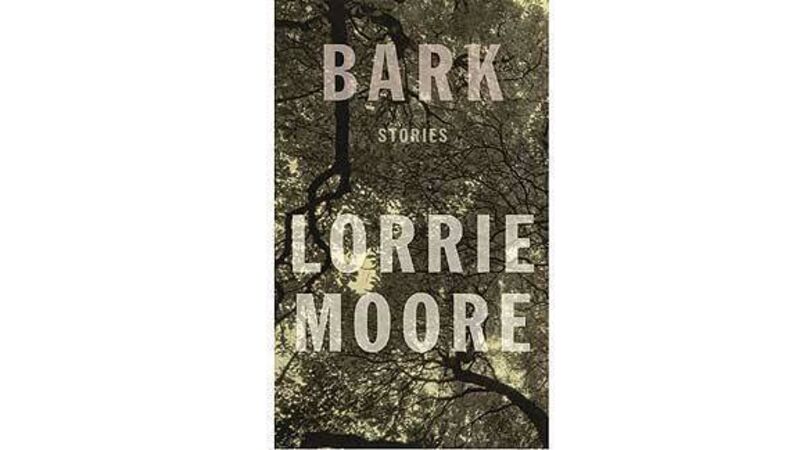Bark

The eight stories that make up Bark, Lorrie Moore’s first collection in 16 years, are, on the surface, typical fare. They deal, in a blackly comic style that has become Moore’s trademark, fixated on crumbling relationships and their ruined aftermath, rippling with anger, betrayal, the melancholy of passing time, and a peculiar sense of disconnection that verges on the surreal. And in decorating their backdrop with relentless newsworthy and pop culture references to war, terrorist attacks and celebrity deaths, these are also stories that strive to put their own shape on already clearly defined moments. Bark has a word-play quality that implies not only aggressive or defensive sounds but also a rough, protective outer layer, and these aspects echo repeatedly through the stories. The dialogue is never less than a delight, and the revelations break in waves, but their lingering sensation is, all too often, one of hollowness.
“Thank You For Having Me,” is an account of a woman in the days following Michael Jackson’s passing: “I tried to think positively. ‘Well, at least Witney Houston didn’t die,’ I said to someone on the phone. Every minute that ticked by in life contained very little information, until suddenly it contained too much.” Accompanied by Nickie, her giantess daughter, she attends the second wedding of their one-time beautiful Brazilian babysitter, Maria. Also attending, as band-leader and best man, is Maria’s first husband, who occupies himself by filling the country air with songs like “I Want You Back” and a weird Dylanesque rendition of “I Will Always Love You”. And as if this were not enough, the show is soon gatecrashed by a crew of Harley-roaring, gunwaving Hell’s Angels.











